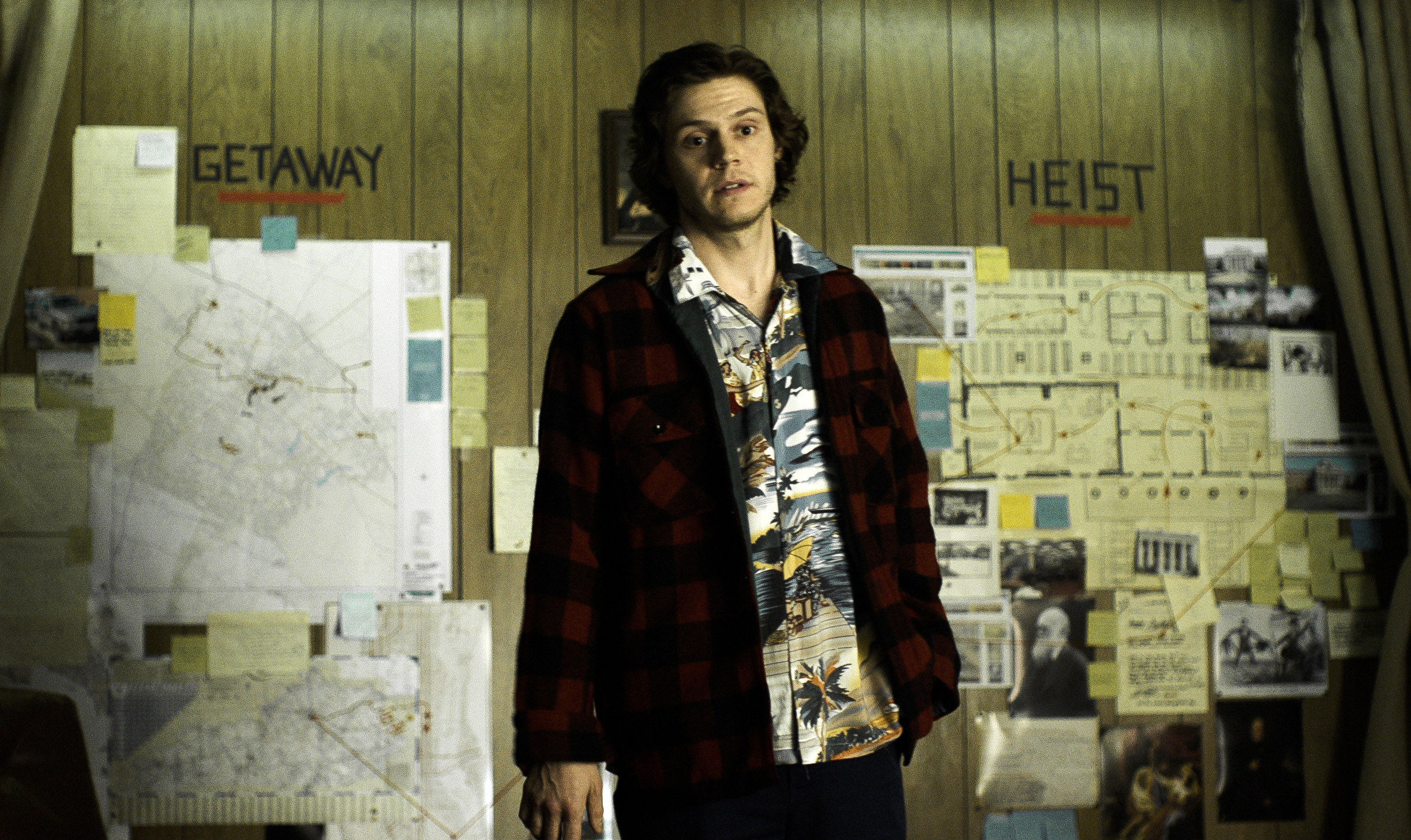
By JAKE COYLE
Associated Press
For anyone who has ever read “Crime and Punishment” and then really wanted to see a frat boy version — Bro-stoyevsky, if you will — your movie has finally arrived. “American Animals” is about a foursome of Kentucky college students — all white kids from privileged backgrounds — who in 2004 decided to steal some extremely valuable books from the Lexington library at Transylvania University. They are motivated less by the millions the books (particularly John James Audubon’s multi-volume “The Birds of America”) could fetch than a desire to step beyond a line and turn their regular lives into something “special.”
“We’re supposed to be hunter gatherers, man,” one says to another in a grocery store aisle.
The irony is that their brazen plot turns them into just another kind of cliché — hapless, dimwitted criminals — and leaves them ultimately with nothing but regret and shame. Oh, and this movie. Bart Layton’s “American Animals” isn’t just a dramatization of the 2004 heist. It’s frequently narrated and commented upon by the real guys whose story the film is based on. Warren Lipka, Spencer Reinhard, Eric Bosuk and Charles Allen II all appear in documentary-style interviews that punctuate the heist narrative, looking back years later with ashen remorse that may or may not mask their pleasure at starring in their own movie.
It opens, cleverly, with the words “This is not based on a true story.” Then, with a puff, the middle words blow away leaving only, “This is a true story.” Layton has previously played with hybrids of fiction and nonfiction. His 2012 documentary “The Imposter,” about the shape-shifting con artist Frederic Bourdin, was as manipulative and deceptive as its sly subject. And especially in the first half of “American Animals,” Layton works hard — too hard — to impress its own stranger-than-fiction playfulness. The talking-head testimonies of the guys, along with their parents and teachers, are joined with scenes in which characters question each other’s memories. Layton sometimes plays multiple versions of scenes, like the foggily remembered meeting with a possible fence to sell the books in New York.
The what’s-true-what’s-not tricks, reminiscent of last year’s “I, Tonya,” are — like the students’ own high-minded plans — not quite as smart as Layton seems to think. But the actors are quite good. Barry Keoghan (“The Killing of a Sacred Deer”) plays Spencer, a talented painter in search of some artistic suffering. “Art has to be about something more than: My life is great and I’m really good at drawing,” he says. The valuable books first catch his eye, but it’s his friend Warren (Evan Peters) who’s the ringleader. While his parents are divorcing, Warren lets his athletic scholarship slide and refashions himself as a James Dean rebel and small-time thief.
Through charisma and cajoling, he assembles a team (Jared Abrahamson and Blake Jenner play Bosuk and Allen) and what starts as a hypothetical lark turns into a genuine if poorly considered plot, predicated on disabling the middle-aged librarian (Ann Dowd) and dressing up as elderly men in costumes that mostly resemble 1970s Dick Van Dykes. They make a study of heist movies, watching films like Stanley Kubrick’s “The Killing,” giving themselves “Reservoir Dogs” nicknames and imagining a smooth, stylish “Ocean’s 11” operation. In a sense, “American Animals” rewards them with the notoriety they sought. And it’s reasonable to wonder if the film — which conflates their crime with the existential malaise of American youth — isn’t just another way for them to profit for what they deserve only punishment. (Allen also wrote a 2010 book titled “Mr. Pink.” Reinhard is still painting.)
There’s plenty hollow in the self-aware machinations of “American Animals.” But there’s also something affecting in Reinhard’s regret and how the film charts the swift, crushing fall of a dopey, quixotic idea hatched by kids who don’t realize that what they’re playing at isn’t a game. “American Animals” would be a legitimate cautionary tale if it wasn’t invalidated by its own existence. “American Animals,” a The Orchard and MoviePass Ventures release, is rated R by the Motion Picture Association of America for “language throughout, some drug use and brief crude/sexual material.” Running time: 116 minutes. Two stars out of four.



















